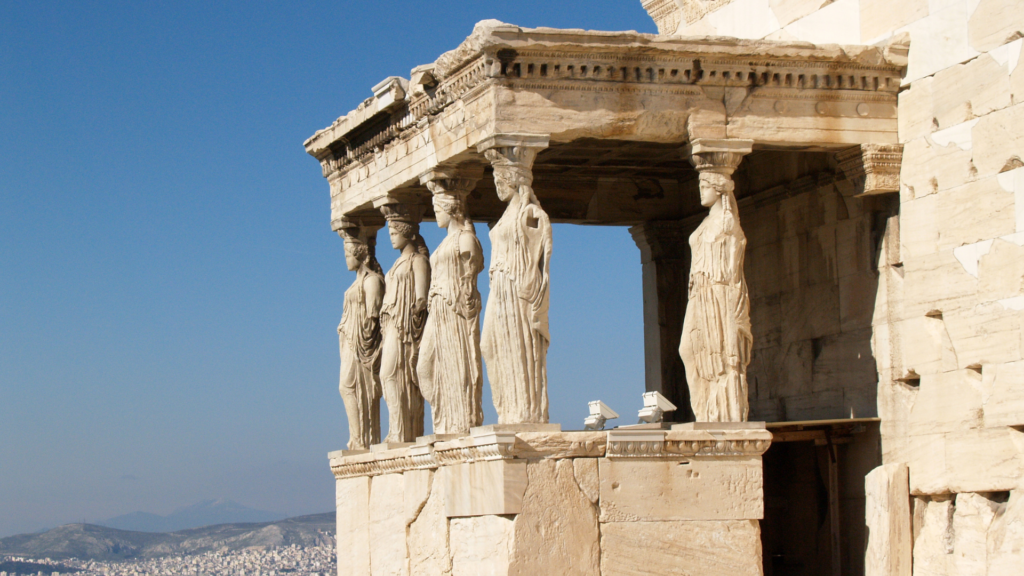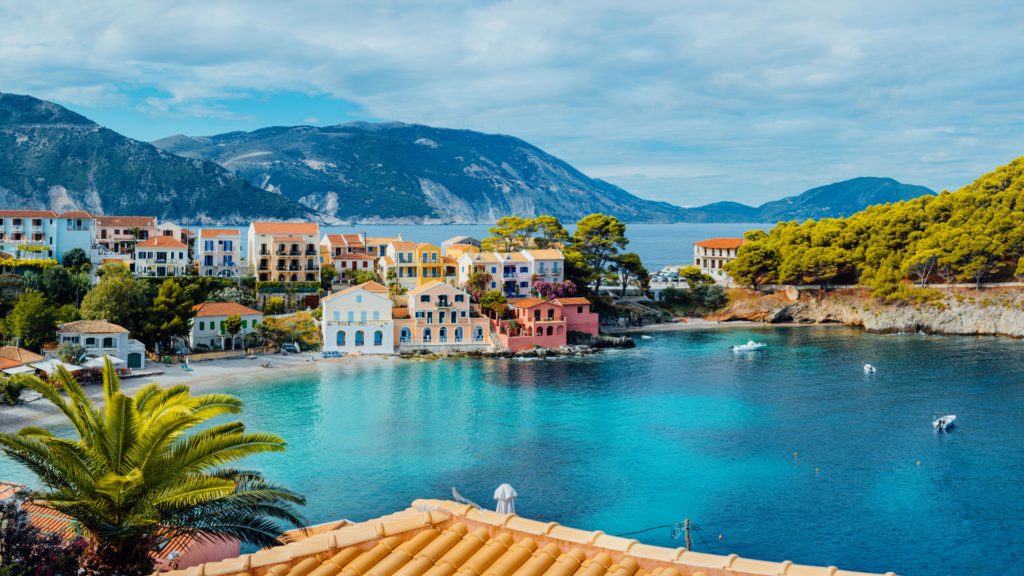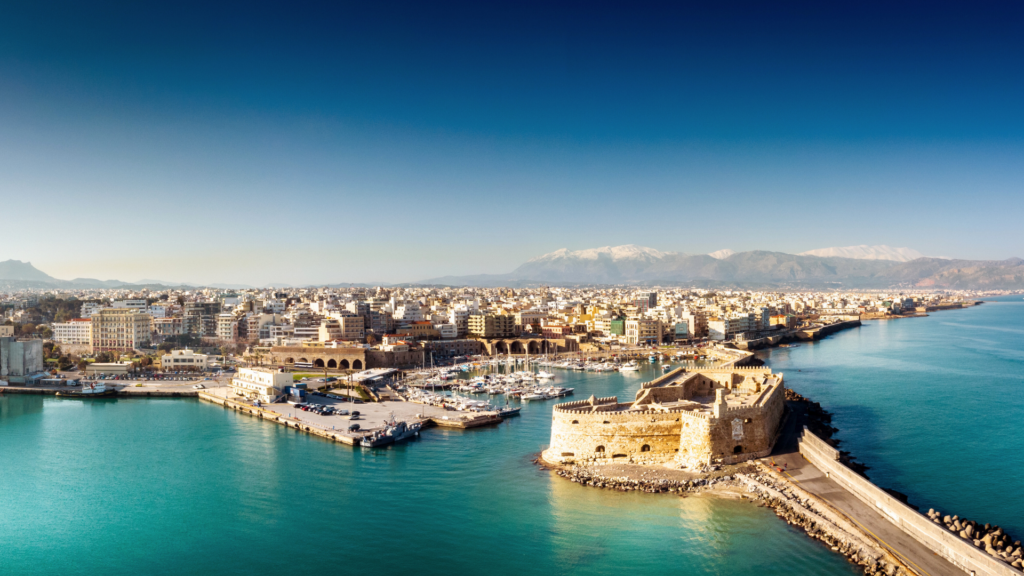Travel to Greece Guide to organize your dream holidays to the most captivating European country – to Greece! Specifically, Greece is known for its rich history, stunning landscapes and warm hospitality. A trip to this fantastic destination offers a wonderful opportunity to immerse yourself in ancient civilizations, soak up the Mediterranean sunshine, indulge in delicious cuisine, and experience the vibrant Greek culture.
In this travel guide, we will provide you with essential information and tips to make your trip to Greece unforgettable.

Picture by: rawf8
Plan your Travel to Greece Guide
Choosing the Right Time to Visit
Greece enjoys a Mediterranean climate, with hot summers and mild winters. The peak tourist season is from June to August when the weather is perfect for beach activities and outdoor exploration. However, if you prefer a quieter and more budget-friendly experience, consider visiting in spring (April-May) or autumn (September-October).
Visa Requirements
Most travelers from the United States, Canada, Europe, Australia, and other western countries do not require a visa for stays of up to 90 days. But, it is important to check the latest visa regulations before your trip.
Vaccinations and Health Precautions
There are no specific vaccination requirements for traveling to Greece. However, it is advisable to be up-to-date on routine vaccines and consult with your healthcare provider regarding any additional vaccinations recommended for international travel.
Booking Flights and Accommodation
Before organizing your travel to Greece guide, consider flying into Athens International Airport, which is the country’s main gateway. From there, you can easily access other destinations within Greece. As for accommodation, the legendary country offers a wide range of options, including luxury resorts, boutique hotels, budget-friendly guesthouses, and vacation rentals.
Find out our last minutes offers for accommodations here.
Exploring Greek Culture and History
Ancient Ruins and Archaeological Sites
Greece is renowned for its ancient ruins and archaeological sites that provide glimpses into its fascinating history. In fact, some must-visit sites include the Acropolis and Parthenon in Athens, the ancient city of Delphi, the Palace of Knossos in Crete, and the Theater of Epidaurus.
Museums and Art Galleries
Immerse yourself in Greek art and culture by visiting the numerous museums and art galleries. The Acropolis Museum in Athens, the National Archaeological Museum, and the Museum of Cycladic Art are just a few of the cultural gems that await you.
Traditional Greek Cuisine
Greek cuisine is a highlight of any trip to Greece. Indulge in mouthwatering dishes such as moussaka, souvlaki, tzatziki, and fresh seafood. Don’t forget to try traditional Greek desserts like baklava and loukoumades.
Greek Festivals and Celebrations
Greece is known for its vibrant festivals and celebrations. From the Athens Epidaurus Festival showcasing ancient Greek drama to the colorful Carnival celebrations in Patras, there is always a lively event happening throughout the year.

Picture by: Igor_Tichonow
Discovering Greece’s Natural Beauty
Island Hopping in the Greek Islands
Island hopping is among the top option when planning a travel to Greece guide! In fact, the Greek Islands offer a paradise for beach lovers and sun seekers. Explore popular islands like Santorini, Mykonos, and Rhodes, or discover hidden gems like Milos, Naxos, and Zakynthos. Each island has its own unique charm and attractions.
Exploring the Mainland
Beyond the islands, Greece’s mainland boasts stunning landscapes and historic sites. Visit the majestic Meteora monasteries, hike through the rugged Vikos Gorge in Zagori, or explore the ancient city of Olympia.
Visiting National Parks and Natural Reserves
Nature enthusiasts will be delighted by Greece’s diverse natural beauty. Discover the lush forests of Mount Olympus, explore the rugged landscapes of Samaria Gorge in Crete, or marvel at the crystal-clear waters of the Blue Caves in Zakynthos.
Enjoying Beaches and Coastal Activities
With its extensive coastline, Greece offers countless beautiful beaches. Whether you prefer secluded coves or vibrant beach resorts, you will find the perfect spot to relax and soak up the Mediterranean sun. Engage in water sports like snorkeling, scuba diving, and sailing.
Getting Around Greece
Public Transportation
Greece has a well-developed public transportation system, including buses and trains. The Athens Metro is an efficient way to navigate the capital city. Public transportation is generally affordable and reliable, making it a convenient option for exploring Greece.
Renting a Car
Renting a car provides flexibility and freedom to explore Greece at your own pace. However, keep in mind that Greek roads can be narrow and winding, and driving rules may differ from your home country. Ensure you have an international driving permit and familiarize yourself with local traffic regulations.
Taking Domestic Flights
If you plan to visit multiple destinations in Greece, domestic flights are a time-saving option. Several airlines operate flights between major cities and popular tourist destinations.
Ferries and Boat Trips
Greece’s extensive coastline and islands are well-connected by ferry services. Island hopping by ferry is a popular way to explore different islands and enjoy scenic sea journeys. Book your ferry tickets in advance during peak season.

Picture by: excentric_01
Greek Hospitality and Etiquette
Greetings and Politeness
Greeks are also known for their warm hospitality. It is customary to greet people with a friendly “kalimera” (good morning), “kalispera” (good evening), or “yasou” (hello). Show respect by using “Mr.” or “Mrs.” followed by the person’s last name when addressing them.
Tipping and Service Charges
Tipping is appreciated but not obligatory in Greece. A customary tip of 5-10% is common in restaurants if you receive good service. Some hotels and restaurants may include a service charge (usually 12-15%) in the bill.
Dress Code and Respect for Religious Sites
When visiting religious sites such as churches and monasteries, it is important to dress modestly and cover your shoulders and knees. Remove hats and sunglasses as a sign of respect.
Social Customs and Traditions
Greek culture is steeped in traditions and customs. Greeks value family, friendship, and community. Join in local traditions, such as plate smashing at weddings or participating in Greek dances during festivals. Embrace the lively spirit of Greek celebrations.
Safety and Security in Greece
General Safety Tips
Firstly, Greece is generally a safe destination for travelers. However, it is advisable to take common precautions, such as keeping your belongings secure, being aware of your surroundings, and avoiding isolated areas at night. Use reliable transportation services and be cautious of pickpockets in crowded tourist areas.
Emergency Numbers and Services
In case of emergencies, dial the universal emergency number 112 for immediate assistance. Familiarize yourself with the local emergency services, including police (100), ambulance (166), and fire department (199).
Health and Travel Insurance
It is recommended to have travel insurance that covers medical expenses in case of illness or injury during your trip. Specifically, carry necessary prescription medications and any required documentation for medical purposes.
Avoiding Tourist Scams
Like any popular tourist destination, Greece has its share of scams and tourist traps. Be cautious of overly friendly strangers offering unsolicited help, and only use licensed taxis or official transportation services. Additionally, you can use reputable tour operators for excursions and verify prices and services beforehand.

Picture by: Starcevic
Greek Language Basics
Common Phrases and Expressions
Learning a few basic Greek phrases can enhance your travel experience. Some useful expressions include “efharisto” (thank you), “parakalo” (please), and “signomi” (excuse me). Locals appreciate when visitors make an effort to communicate in their language.
Useful Words and Vocabulary
Expand your vocabulary with common Greek words such as “kali mera” (good morning), “efharisto poli” (thank you very much), and “pame” (let’s go). Moreover, language apps or pocket phrasebooks can assist you in learning the essentials.
Pronunciation Tips
Greek pronunciation may seem challenging at first, but with practice, it becomes easier. Pay attention to vowel sounds and letter combinations. Practice the sounds of Greek letters like “theta” (th) and “chi” (ch) to improve your pronunciation.
Conclusion
To conclude, this travel to Greece guide grants an incredible journey filled with captivating history, breathtaking landscapes, and unforgettable experiences. From ancient ruins to picturesque islands, Greece offers something for every traveler. Embrace the warmth of Greek hospitality, savor the flavors of traditional cuisine, and immerse yourself in the rich culture. Get ready for a trip of a lifetime.







